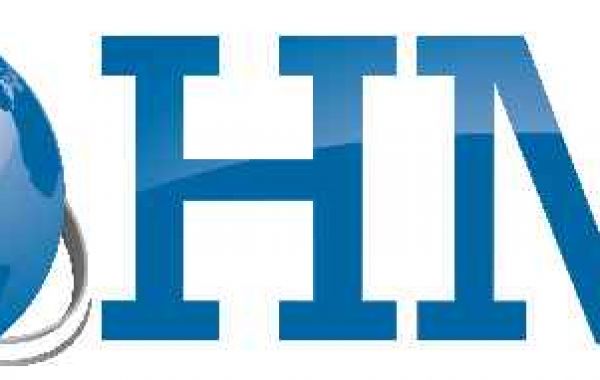The COVID-19 pandemic has wreaked havoc on healthcare organizations across the United States.
But as some organizations are failing, others are thriving. By capitalizing on changes, and by training staff, organizations can optimize healthcare revenue cycles throughout the coronavirus pandemic.
Today, we’re highlighting five ways COVID-19 has impacted healthcare revenue cycles for organizations across the United States – and how organizations are thriving in the face of change.
Telehealth Appointments Coding Challenges
Obviously, telehealth has surged in recent months. Many outpatient facilities have switched to telehealth appointments, giving patients the same quality of care via a safer, remote environment.
Telehealth appointments are also introducing coding and billing challenges. Some healthcare plans have updated policies for telehealth, while others have not. Medicare has introduced telehealth-related changes, for example, while other insurers are struggling to manage.
Meanwhile, some staff have inadequate training for telehealth billing. They bill patients when they should be billing healthcare plans, for example, or they’re charging inaccurate out-of-pocket payments and co-pays to providers. Some organizations have improper coding in place, complicating things further.
Remote Work
It’s not just patients accessing care remotely: staff are working remotely. Many organizations have requested billing and other support staff to work remotely throughout the pandemic.
Hennepin Healthcare in Minneapolis, for example, recently shifted nearly all support staff to remote positions, including coders, coding educators, coding auditors, coding support specialists, coding coordinators, and transcriptionists, as explained in an interview with HealthLeaders.
Remote work has introduced new challenges. Remote employees need to access company infrastructure to work, for example. Remote employees also need to consider HIPAA, taking extra care when managing patient data in an unfamiliar setting.
With employees using their own equipment, it introduces new challenges. IT departments across the country are struggling to keep up.
Billing Coding Updates
There have been multiple billing and coding changes as a result of COVID-19. Good healthcare organizations are staying up-to-date on changes, while other healthcare organizations are lagging behind.
In April, the American Medical Association (AMA) announced it was fast-tracking the development of a unique Current Procedural Terminology (CPT) code for coronavirus testing.
CMS also released guidance on billing and reimbursement for treating COVID-19. CMS had previously released two Healthcare Common Procedure Coding System (HCPCS) codes, allowing labs to bill for certain COVID-19 diagnostic tests.
These changes can seem confusing, but good coding is the backbone of healthcare revenue cycle management.
Long-term Medicare Changes
As part of an $8.3 billion emergency funding measure passed earlier this year, Medicare now covers telehealth services. Healthcare organizations can receive payment from Medicare for telehealth appointments. Medicare covers video visits and similar telehealth appointments.
It’s possible this change is permanent: some experts suggest it will forever change the way we deliver healthcare.
When patients can access care without leaving their home, and when specialists can provide treatment from a remote setting, it changes the face of healthcare.
Postponed Elective Surgeries
Many patients have postponed elective surgeries due to concerns about coronavirus transmission in hospitals. Revenue cycle experts have also encouraged patients who can’t afford out-of-pocket costs to postpone elective procedures until they have a payment plan in place.
In April, CMS recommended that “all elective surgeries, non-essential medical, surgical, and dental procedures be delayed during the 2019 Novel Coronavirus (COVID-19) outbreak.”
Prior to that press release, organizations had already announced their own elective surgery policies.
Organizations across the country postponed elective surgeries to free up resources in preparation for a surge in cases.
All of these shifts have a significant impact on revenue cycles.
Increased Focus on Emergency Preparedness
Good healthcare organizations were prepared for this pandemic. They had emergency preparedness plans in place. They had previously established business continuity plans. Other organizations were less prepared: they were prepared for smaller emergencies or short-term surges, but they were not prepared for a months-long pandemic.
Revenue cycle management consultants can establish emergency preparedness plans for organizations. They can create business continuity guidance, helping firms navigate a complex, uncertain future while maintaining quality patient care and compliance.
Consider Hiring a Revenue Cycle Management Consultant
Revenue cycle management consultants are in high demand. Organizations across the United States are struggling to deal with the coronavirus pandemic – but some are thriving.
The difference between good and bad healthcare organizations is effective revenue cycle management. At HMI Corp, we specialize in revenue cycle management consulting. We highlight inefficiencies in your organization, then fix them.
Schedule a consultation with HMI Corp today. Discover effective revenue cycle management services that deliver a proven return on investment. We have 30+ years of experience helping small, medium, and large organizations optimize revenue cycles.








